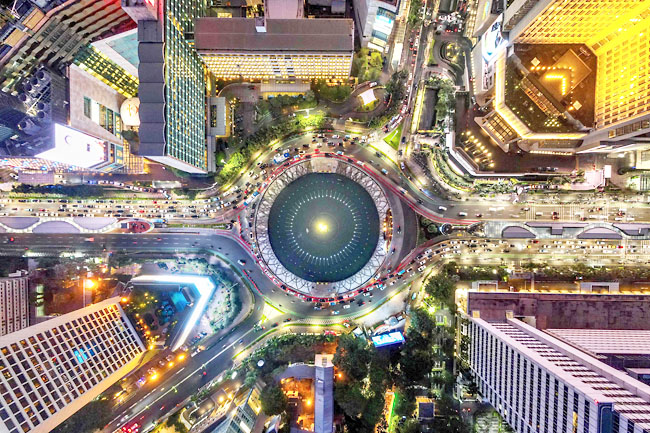JAKARTA (AFP) – Indonesian President Joko Widodo leaves office today with high approval ratings thanks to strong economic growth, but his successor Prabowo Subianto has bigger ambitions, including an eye-catching USD28 billion free meal plan for students.
While the country regularly enjoys about five per cent annual expansion, the former general has pledged to capitalise on his predecessor’s policies to reach eight per cent by tapping the nation’s huge human resources.
“From prosperity, we can bring justice to all Indonesian people. We must unite to eliminate poverty and eliminate hunger, and eliminate suffering from our people,” Prabowo said in his victory speech in March.
To do that, he is banking on big national projects, the archipelago’s vast natural resources and attempts to lower a poverty rate of more than nine per cent.
He has pledged to largely carry on the popular economic programme of Widodo, better known as Jokowi, but he has also signalled a more direct attempt to alleviate poverty in the nation of around 280 million.

His big campaign pledge is a USD28-billion plan to supply tens of millions of schoolchildren and pregnant women nationwide with free meals.
He said the scheme – to be rolled out in January – will halt stunted growth in a country where more than a fifth of children up to five years old are affected and create several million more jobs.
Yet the plan has faced criticism over logistical and cost issues, with some wondering how he can pull off the plan and keep spending within the annual fiscal deficit limit of three per cent of gross domestic product, which is mandated by law.
Jokowi focussed on large infrastructure projects including roads, bridges and airports aimed at better connecting the archipelago. But experts said Prabowo will deviate from that in his bid to realise a campaign promise to turn Indonesia, a G20 member, into an “advanced and developed” economy. “He won’t be blindly following Jokowi’s footsteps, but he also won’t completely abandon or neglect everything, so he will be somewhat in the middle,” said economist at the Centre for Strategic and International Studies Yose Rizal Damuri.
“It seems like he has a slightly different approach from Jokowi. The priority is no longer infrastructure development, but more to human capital development.”
His agenda will also focus on agriculture, observers said, with a food estate programme aimed at achieving food self-sufficiency, land clearing for bioethanol projects in the restive eastern region of Papua, and a green fund selling carbon emission credits.
At the same time, Prabowo is inheriting Jokowi’s legacy project – a USD32 billion move of the capital from traffic-clogged and sinking Jakarta to Nusantara, a planned green city in eastern Borneo where construction is under way.
The city will not be ready until 2045, but its rapid construction is already eating into state coffers.
Prabowo has pledged to continue the project despite speculation he would put it on hold or keep Jakarta as the capital. He has also supported Jokowi’s resource nationalism, particularly in the nickel sector, where Jakarta has imposed export restrictions in a bid to become a key player in the electric vehicle supply chain.






